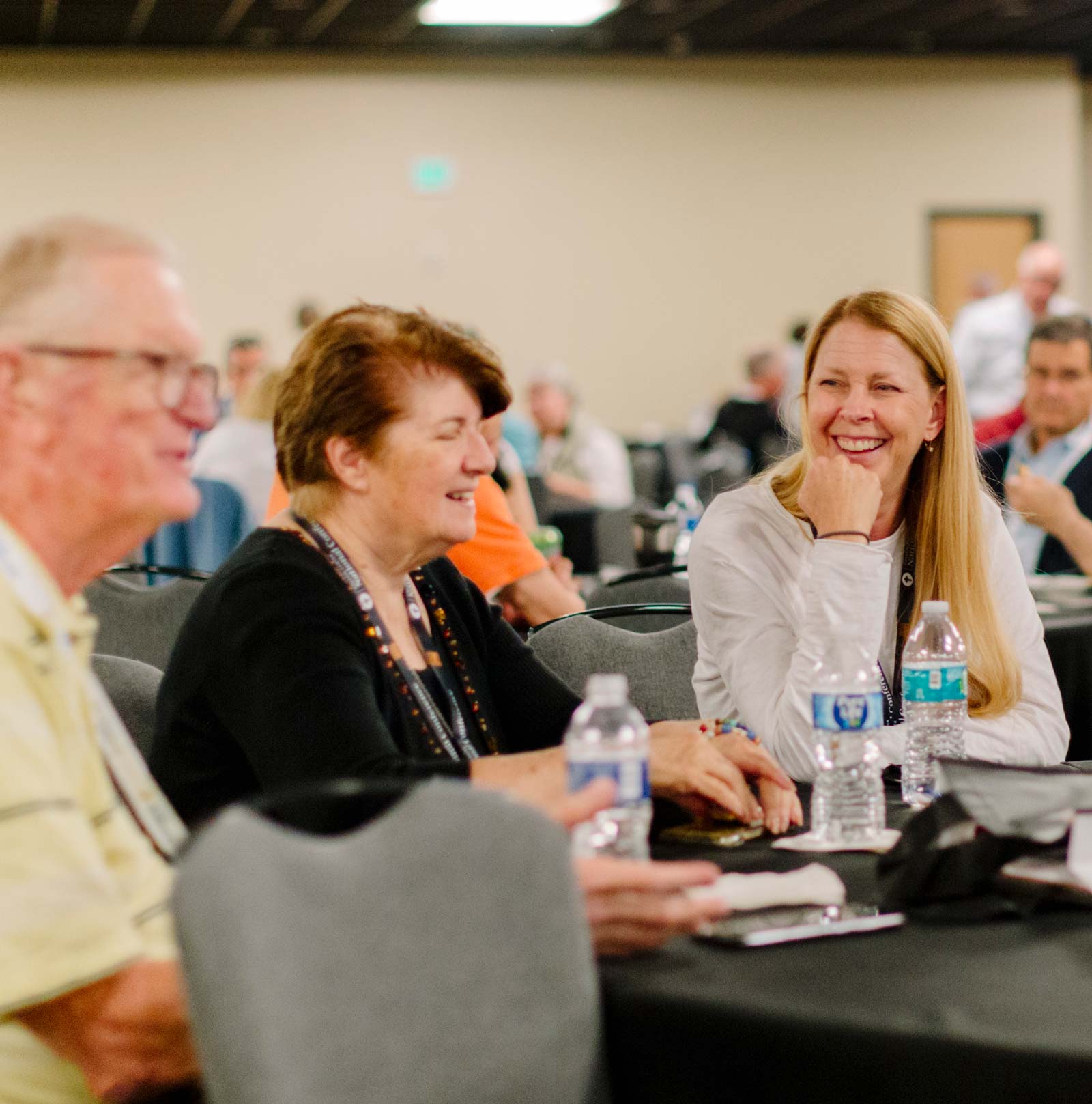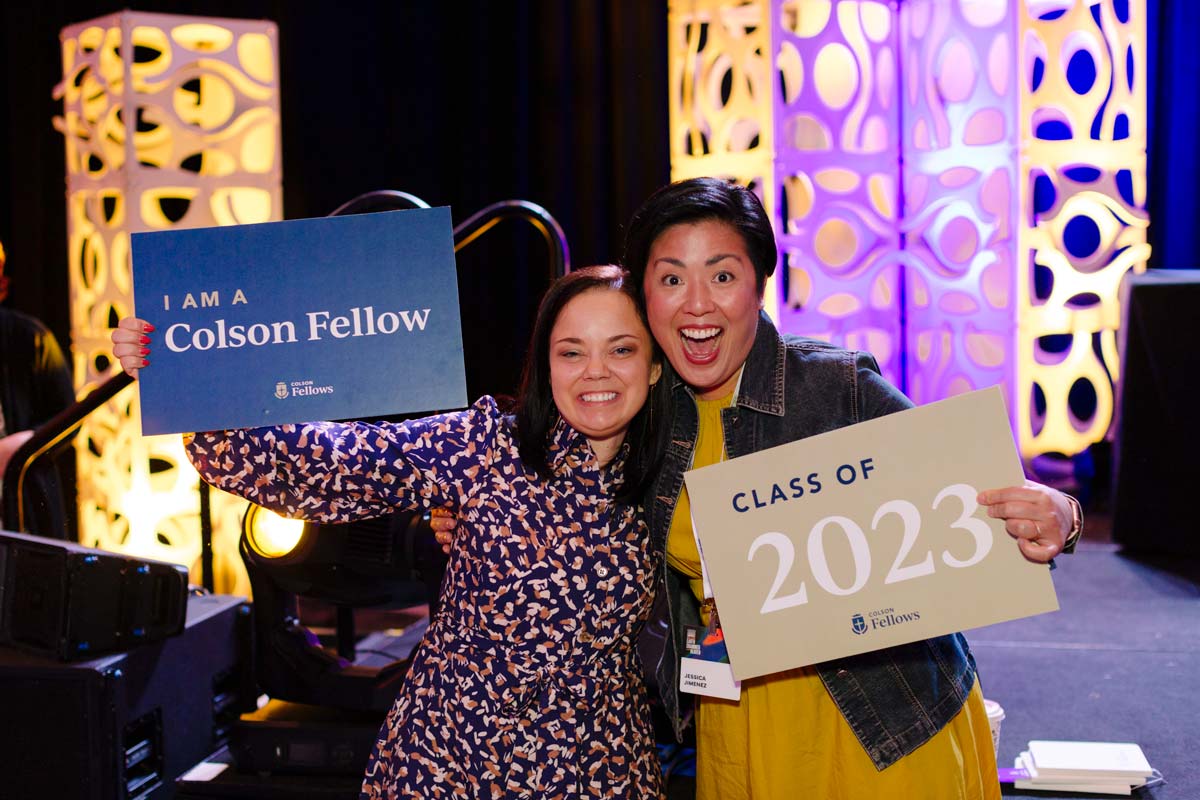result



Colson Fellows
Laying the Foundation for a Courageous Faith
Laying the Foundation for a Courageous Faith
S. Michael Craven | Vice President of Equipping & Mobilization


How the Colson Fellows program equips Christians to move from a privatized faith to be a people of courage and hope in this time and place.
At the Colson Center, we’re not merely interested in identifying the need for courageous faith; we want to be part of the solution. How do we move from an awareness of the need to the cultivation of courage? Fortification work must be done to the very foundations of our faith.
I am often asked, “What is the ‘problem’ that the Colson Fellows aims to solve?” In short, I would say, “the privatization of Christian faith.”
Beginning in the late 19th century, the gravitational pull upon the Church in America was toward a simplified or reductive Gospel in response to the liberalizing agenda of the academy. You may recall that in the early 20th century a great debate arose between the modernists, a group of theologically liberal denominations and academics, and the fundamentalists, a group of Bible-believing churches and theologians fighting to hold on to orthodoxy.
In short, it came down to this: The modernists opted for the social/justice benefits of the Gospel (pejoratively known as the “social gospel”) to the exclusion of the Lordship of Christ, while the fundamentalists held fast to salvific dimensions of the Gospel and the centrality of Christ. For many, this unintentionally resulted in a division in which the Gospel, or “good news,” was separated from the Kingdom (the in-breaking rule and reign of Christ). In essence, the modernists wanted the benefits of the “kingdom” without the King, while the fundamentalists found themselves clinging fast to a King without a Kingdom. This condition would ultimately reduce “redemption” to a largely personal event. Lost was the advent of God’s healing reign over the entire cosmos.
The “Gospel of the Kingdom” was never meant to be reduced simply to a prescription for personal salvation. While it no doubt includes the redemption of individuals, the Gospel of the Kingdom is ultimately a declaration that the hope of humanity can only be found in the Anointed King, who, by His death, burial, and resurrection, has been given all authority in Heaven and on Earth to make all things new—and it is this activity into which He calls, equips, and sends His Church to bear witness to what life looks like under the rule and reign of Christ.

Colson Fellows come into the program hoping to learn more about the Christian worldview, only to discover that a Christian worldview can only derive from the biblical story as revealed over the course of four “chapters,” or movements: creation, fall, redemption, and restoration. Most of us have come to understand the biblical story in just two of those chapters or movements: the fall and redemption. We start the biblical story at the “sin problem,” in entirely personal terms, and we end the story in redemption, with Jesus coming and dying on the cross for our sins so that we may be reconciled to God. All true, of course, but still only part of the story.
This newfound understanding of the practical implications of God’s redemption often leads to a dramatic conversion among Colson Fellows in two key areas. First, the good news of God’s Kingdom come into the world expands their understanding to include the redemption of every aspect of creation and their role in that redemptive work. Second, by recovering the truth of God’s active, healing reign over all of creation, their discouragement turns to hope as they follow Christ in His all-encompassing redemptive work and see their “enemies” as image bearers. As one recently commissioned Colson Fellow wrote, “The Colson Fellows program is the first place I learned of, felt, and can expect hope—a true biblical hope. Before this program, hope was a platitude.” As we discuss often in the Colson Fellows program, deep hope in the Gospel has public implications. This hope compels us to courageous action. I trust you’ll enjoy reading about a tangible example of this action in the next story featuring Josh & Jill Stearns (C’18) of Austin, Texas. As the Colson Fellows program grows, we look forward to equipping more Christians to step into their roles in God’s glorious work of restoration.
s. Michael Craven
Vice President of Equipping & Mobilization







